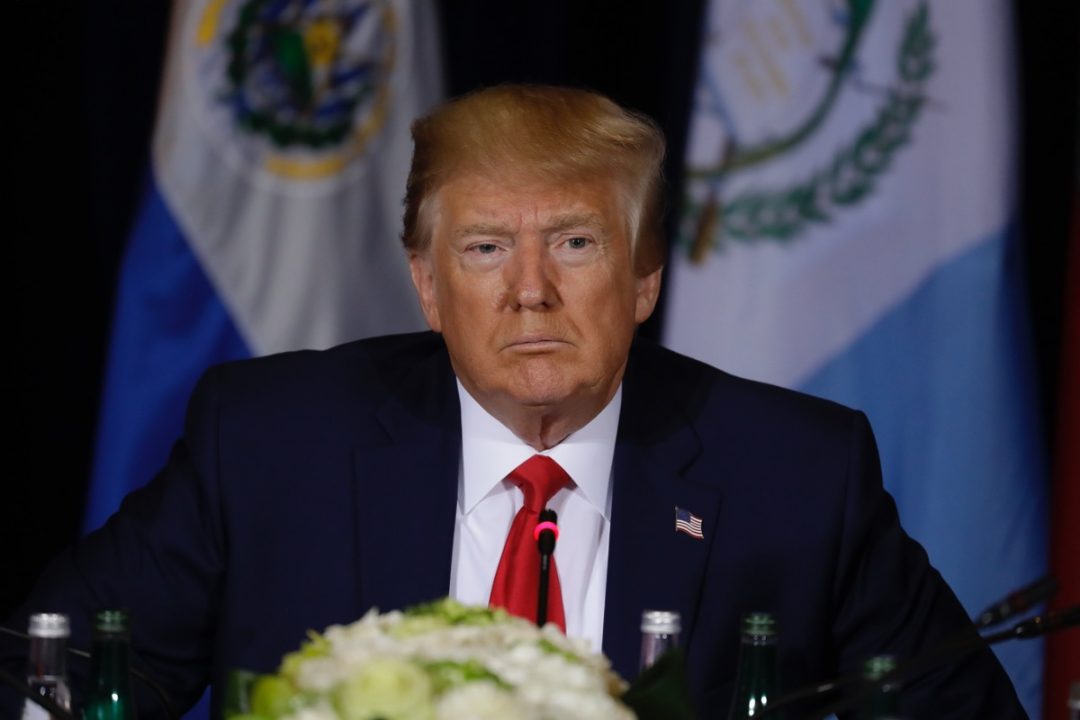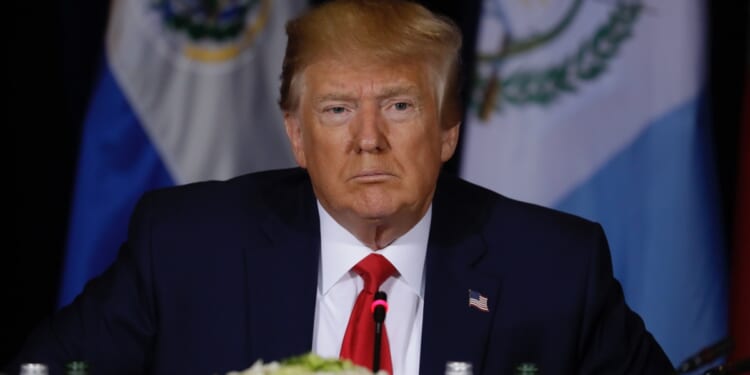
President Donald Trump has confirmed that he authorized the Central Intelligence Agency (CIA) to conduct covert operations inside Venezuela, and said he is weighing strikes targeting drug cartels on land. The confirmation came after a Wednesday report from The New York Times, which quoted administration officials saying that the new authority would allow the CIA to “carry out lethal operations in Venezuela and conduct a range of operations in the Caribbean.”
The president’s acknowledgment of authorizing a new covert war came with the calm confidence of a man assigning paperwork to an agency whose unofficial charter has long included destabilizing regions and toppling governments. Few institutions have committed more illegal acts under the banner of national security than the CIA. For a man who once railed against the Deep State’s endless meddling abroad, Trump now sounds very much like its front man, leaving the noninterventionist faithful with a familiar sense of déjà vu.
Prisoners
Asked about the reasons for authorizing the CIA to “go into Venezuela,” the president gave a straightforward — yet unconvincing — answer:
I authorized for two reasons, really. Number one, they [Venezuela] have emptied their prisons into the United States of America…. They came in through the border, because we had an open-border policy.… [Venezuela is] the worst abuser. They’ve allowed thousands and thousands of prisoners, … people from mental institutions, insane asylums — emptied out into the United States.
It is true that record numbers of Venezuelans crossed the U.S. border during the Joe Biden presidency. Many of them were fleeing economic collapse and repression. But there is no evidence that Nicolás Maduro’s regime deliberately released prisoners or psychiatric patients to send them north. Analysts note that such a policy would leave clear traces — mass release orders or official decrees — which have never surfaced. It isn’t likely that Caracas could keep it secret. Journalists, NGOs, and rival political factions routinely penetrate Venezuela’s prison system. Any large-scale release would have been impossible to conceal. Independent monitoring groups, including the Venezuelan Prison Observatory, routinely track inmate numbers and conditions, and have reported no sudden or unexplained drops. If mass releases had occurred, someone inside or outside the regime would have leaked it long ago.
At the same time, no U.S. agency has produced any public report confirming Trump’s claim.
Drugs
As for the second reason to let the CIA target Venezuela, Trump said:
And the other thing [is] drugs. We have a lot of drugs coming in from Venezuela, and a lot of the Venezuelan drugs come in through the sea … but we’re going to stop them by land also.
“We are certainly looking at land now, because we’ve got the sea very well under control,” he added, referring to five lethal strikes on alleged drug-smuggling boats that have so far left 27 people dead.
Despite building its rationale on drug trafficking, the administration has presented no tangible evidence linking the targeted vessels to organized cartels or Venezuelan state actors. Trump previously claimed the first strike targeted members of Tren de Aragua, a group designated as terrorists. Yet, officials have not disclosed the identities of those killed. Plus, they have provided no forensic proof that the ships were carrying narcotics.
Moreover, U.S. government assessments — including Congressional Research Service and DEA reports — attribute the vast majority of illicit drug flows, especially fentanyl, to networks operating from Mexico, using precursor chemicals imported from China. Cocaine still comes primarily from Colombia, though some shipments transit through Venezuela by sea or air. Washington’s own interagency data describe Venezuela largely as a transit corridor, not a production hub.
“Taking Out” Maduro?
Asked whether the CIA now has authority to “take out” President Nicolás Maduro, Trump avoided a direct answer:
Wouldn’t it be a ridiculous question for me to answer?
He said only, “I think Venezuela is feeling heat,” as are “other countries.” Trump warned that he would not allow Venezuela to “ruin” the United States.
In an October notice to Congress, the White House claimed the United States is engaged in a “non-international armed conflict.” It called groups such as Tren de Aragua “non-state armed groups.” On that basis, Trump directed War Secretary Pete Hegseth to conduct operations against them “pursuant to the law of armed conflict.”
So far, the administration has not publicly confirmed any internal CIA plans, leaving both the scope and legality of these operations in deliberate ambiguity.
Escalation in the Caribbean
The Caribbean is no longer a quiet theater of patrols. The U.S. Navy has assembled one of its largest regional deployments in years.
According to Business Insider, the task group includes the amphibious assault ship Iwo Jima, destroyers Gravely and Jason Dunham, the cruiser Lake Erie, and transport docks San Antonio and Fort Lauderdale, supported by the special-operations ship MV Ocean Trader. Eight major warships now patrol waters near Venezuela, carrying roughly 4,500 sailors and Marines.
Col. Chris Devine, a senior spokesman for the Department of War, told the outlet that
the deployed warships are part of an effort to support the president’s “directive to dismantle Transnational Criminal Organizations (TCOs), Foreign Terrorist Organizations (FTOs), and counter narco-terrorism to defend the homeland.
The New York Times further specified:
The scale of the military buildup in the region is substantial: There are currently 10,000 U.S. troops there, most of them at bases in Puerto Rico….
Previously, Venezuela had scrambled aircraft to shadow U.S. warships operating near its coast. In early September, two Venezuelan F-16s flew close to a U.S. Navy destroyer in what the Pentagon described as a “highly provocative move.” Though Caracas later claimed the maneuver was a “defensive patrol,” its defense minister, Vladimir Padrino, soon escalated the rhetoric. On October 2, he announced Venezuelan radar detected five combat planes near the country’s coast. He labeled them “imperialist combat planes.” Their presence, said Padrino, was a “vulgarity, a provocation, a threat to the security of the nation.”
President Maduro accused Washington of using the naval buildup as cover for regime change.
Business as Usual
Reports have long suggested that Washington has viewed Venezuela’s oil not as another nation’s resource, but as a geopolitical prize to be captured. The country has remained a convenient target of U.S. influence campaigns, often executed through organizations like the National Endowment for Democracy (NED) and USAID — both serving as instruments of “soft” regime change.
Trump’s latest brazen move may look new, but it isn’t. In 2019, he recognized opposition leader Juan Guaidó as Venezuela’s “legitimate president.” That set off sanctions, covert activity, and economic warfare designed to fracture Maduro’s hold on power. In 2020, he deployed warships to the Caribbean under the “counter-narcotics” banner. Weeks earlier, the administration had indicted Maduro on drug-trafficking charges. The operation failed to change the regime, but the method — pressure poorly disguised as law enforcement — survived intact.
Within the current administration, the policy is now shaped by hawkish figures like Secretary of State Marco Rubio and CIA Director John Ratcliffe, according to numerous reports. Diplomats who pursued dialogue — such as Richard Grenell, who held direct talks with Maduro — were pushed aside as Trump cut off diplomatic efforts with Venezuela.
Our constitutional Republic is supposed to deal with nations as they are, not as Washington wants them to be. Normal relations with unfriendly governments are not endorsements; they are acknowledgments of reality. The Founders warned against foreign entanglements precisely because empires — not republics — mistake domination for defense.











